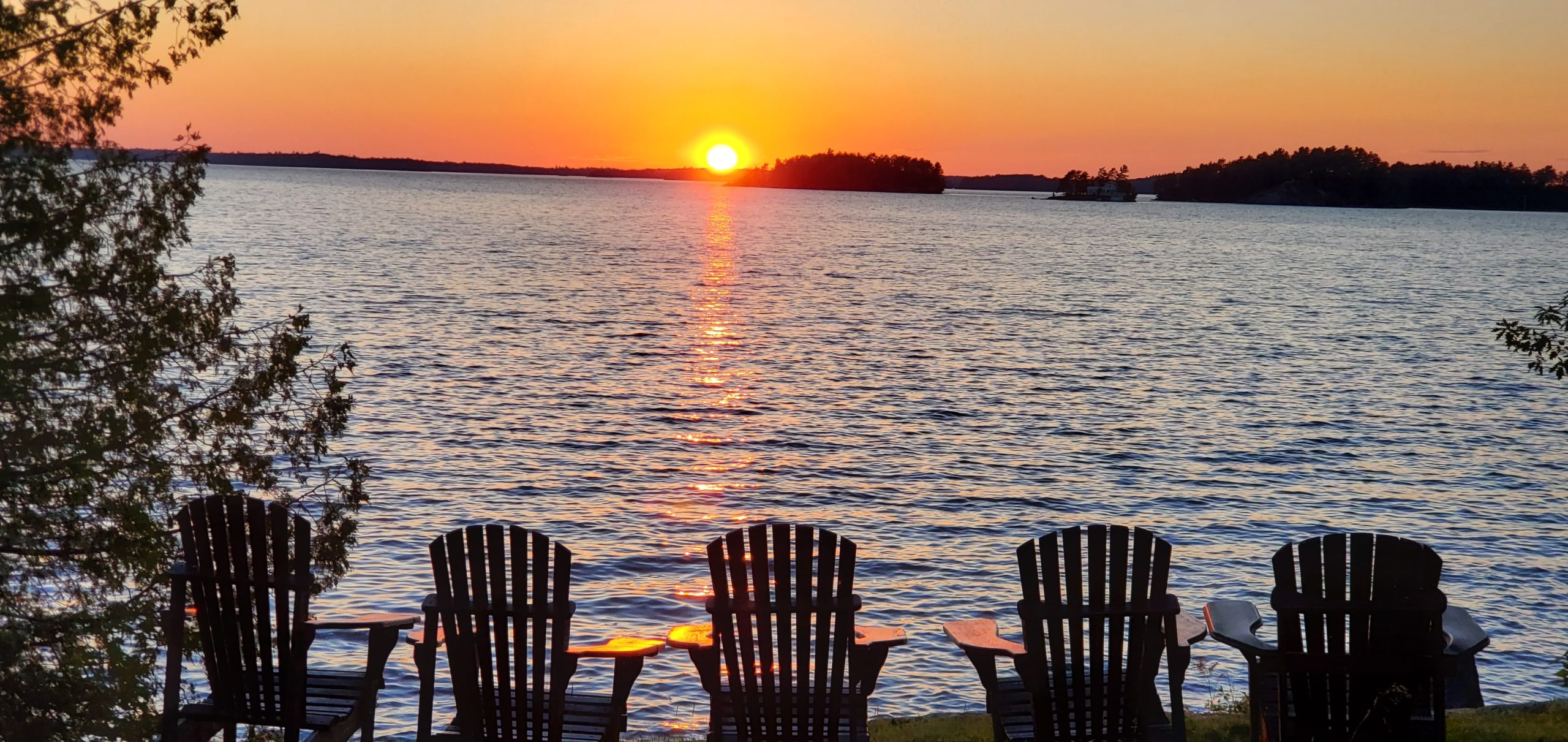In the first of this two-part blog, we look at the emotional aspects of managing a family cottage—and the importance of developing a plan to help address issues proactively before they create avoidable financial and family governance challenges.
The Victoria Day long weekend is more than a statutory holiday across much of the country—it’s the unofficial start of our (all-too-brief) Canadian summer. Garden furniture will be unpacked, barbecues will be fired up and families will get set to slow down and enjoy time together in the warm-weather months. It’s also the weekend when many will reopen the door to their family cottage.
In normal years—but especially during the COVID-19 crisis—cottages are a haven for families to break away from their daily urban lives to relax, unwind and build memories together. It’s the ultimate escape, but also an increasingly costly one.
COVID-19 and the steep escalation in cottage prices
The move to remote work during the coronavirus pandemic and the demand for weekend homes from Canadians unable to travel abroad, has fueled nationwide average median cottage price increases of between 20 per cent and nearly 70 per cent. From Ontario’s Kawartha Lakes region to Prince Edward Island, holiday homes are less affordable than ever. Cottages with lake access now routinely sell for $1 million or more in parts of Ontario.
Families that want to purchase a little piece of Canadiana are faced with the challenging financial decision of whether to take the increasingly pricey cottage plunge—or put their money elsewhere. On the flipside, those who have inherited a property can expect a near-certain financial windfall when their cottage is eventually sold.
Aligning the dream of cottage ownership with your family’s values and finances
But whether you’re considering buying a cottage or plan to continue enjoying the one you currently own, it’s important to understand what ownership means to your family and then plan ahead. The reason is that a cottage isn’t just a potentially valuable piece of your wealth portfolio. It’s likely to be the most emotionally-charged asset you’ll ever own.
If you have children, or share the property with extended family (perhaps if it’s been passed down through generations or to help share costs), this source of so much happiness can also be fraught with conflict if succession and usage rules aren’t properly managed.
Even families with the best intentions find themselves embroiled in cottage-related battles. The good news: these issues are completely avoidable.
Important financial considerations
Even before weighing a cottage home purchase—or accepting one as part of an inheritance—take the time to analyze your lifestyle and finances to determine whether you have the means to carry a second property, potentially for years, let alone the desire. The financial portion of that analysis should extend well beyond mortgage costs.
Cottages are mostly located in northerly regions in Canada, meaning they’re subject to harsh winter weather that causes freeze-thaw damage and widespread wear and tear. If the property is located on a lake, its dock will need to be removed every fall and reinstalled in spring. If you own a boat, it will need to be stored for the winter. Roofs will need to be repaired, pipes may burst when the cold sets in. It’s not uncommon for animals to make cottages their refuge when owners are away, leaving droppings and damage in their wake.
In other words, cottages involve costly, time-consuming upkeep. Even if you have the necessary finances, you may not have the hours needed to do all of that work. Finding qualified trades in cottage country can also be a challenge, so outsourcing those maintenance tasks isn’t always as easy as it seems—especially in regions where qualified trades often charge a premium for their labour.
The key point to remember is that a family cottage shouldn’t be a financial burden. It’s a place to unwind and have fun. If your annual income isn’t substantial, renting a cottage for a week at a time (rather than owning) may be a better option. If you inherit a property, liquidating and investing that capital to fund your retirement or lifestyle needs may be more prudent.
The value of a cottage plan
Before you crack a beer on the dock this summer, remember that owning a cottage requires a mix of financial planning acumen, negotiating skills and refereeing abilities. That’s why developing a cottage plan is so important. Put simply, it’s a tool that helps families plan ahead and avoid common challenges long before they become an issue. It should include everything from succession strategies to sharing agreements and usage rules. Think of it as a guide book to managing the property.
Laying the foundation for that plan starts by mapping out a vision for how you plan to use and benefit from the cottage.
Will it be a retreat that you buy, use for a period of time and then sell? Perhaps you intend to leave it to future generations, or maybe you hope to share ownership with several family members. Many cottages are used by a family for several weeks a year, then rented out as an income property for most of the summer, or possibly longer if the house is winterized.
Your overarching financial and lifestyle goals should lay the foundation for the cottage plan and the conversations that follow.
Why succession planning matters
If you plan to buy, use and then sell the property, succession won’t be an issue. But if the intent is to pass it along to the next generation, you have some important considerations to weigh.
If you have more than one child—and possibly step children if your family is blended—each may have an interest in the property once ownership is passed on through your estate. That could create complications. As adults, they may or may not even have an interest in owning the property, let alone the income to maintain it.
If your children do take ownership, proper legal and tax structuring should be put in place to pass it along to them in an efficient manner (see part two of this blog for more on this important topic), while potentially taking steps to ensure it stays in the family if one child wants to sell their ownership interest or divorces their spouse—which could give that ex-husband or ex-wife usage rights to the property.
Consider a sharing agreement
If you have multiple adult children (or other family members) with whom you share the property, inserting a sharing agreement into your cottage plan is always recommended. It’s essentially a contract that defines financial, maintenance or access obligations and entitlements. It can also be an important part of the estate planning process, providing peace of mind that once you’re gone, the cottage won’t become a flashpoint for your heirs and other loved ones.
The agreement should cover key points such as:
- Who can use the cottage and when
- Who’s responsible for opening and closing the cottage
- Whether the co-owners or children can bring guests to the cottage
- How upkeep and operational costs will be shared
- Whether it can be rented
- How renovations or other structural enhancements will be agreed and managed
- Whether a reserve fund is need to cover cottage maintenance expenses
The agreement should also outline a process for making key decisions and settling disputes, should they arise. Even setting basic rules around how garbage should be disposed or how items such as furniture or utensils should be left when the cottage is closed for the weekend, can help reduce the risk of conflict.
Communication is key
Most importantly, it always helps to discuss your cottage plan with your kids or family members who have access to the space. Where your children are concerned, outline your estate plans and make it clear whether the cottage will transfer to them or will be sold before or after you pass away.
In the end, knowledge, awareness and communication go a long way towards de-escalating inter-family squabbles. While it may seem burdensome to develop a cottage plan and consider succession when your main goal is to simply have fun on the weekends at your second home, thinking ahead could save you and your family stress and sleepless nights down the road.
At the very least, it helps ensure that your most emotional asset will be properly managed and can be the source of joy and (pleasant) family memories that it should be.
For information on developing a family cottage plan, contact a member of our team. And be sure to read the second instalment of our two-part blog on managing family cottage succession.
The Bridgewell Team






